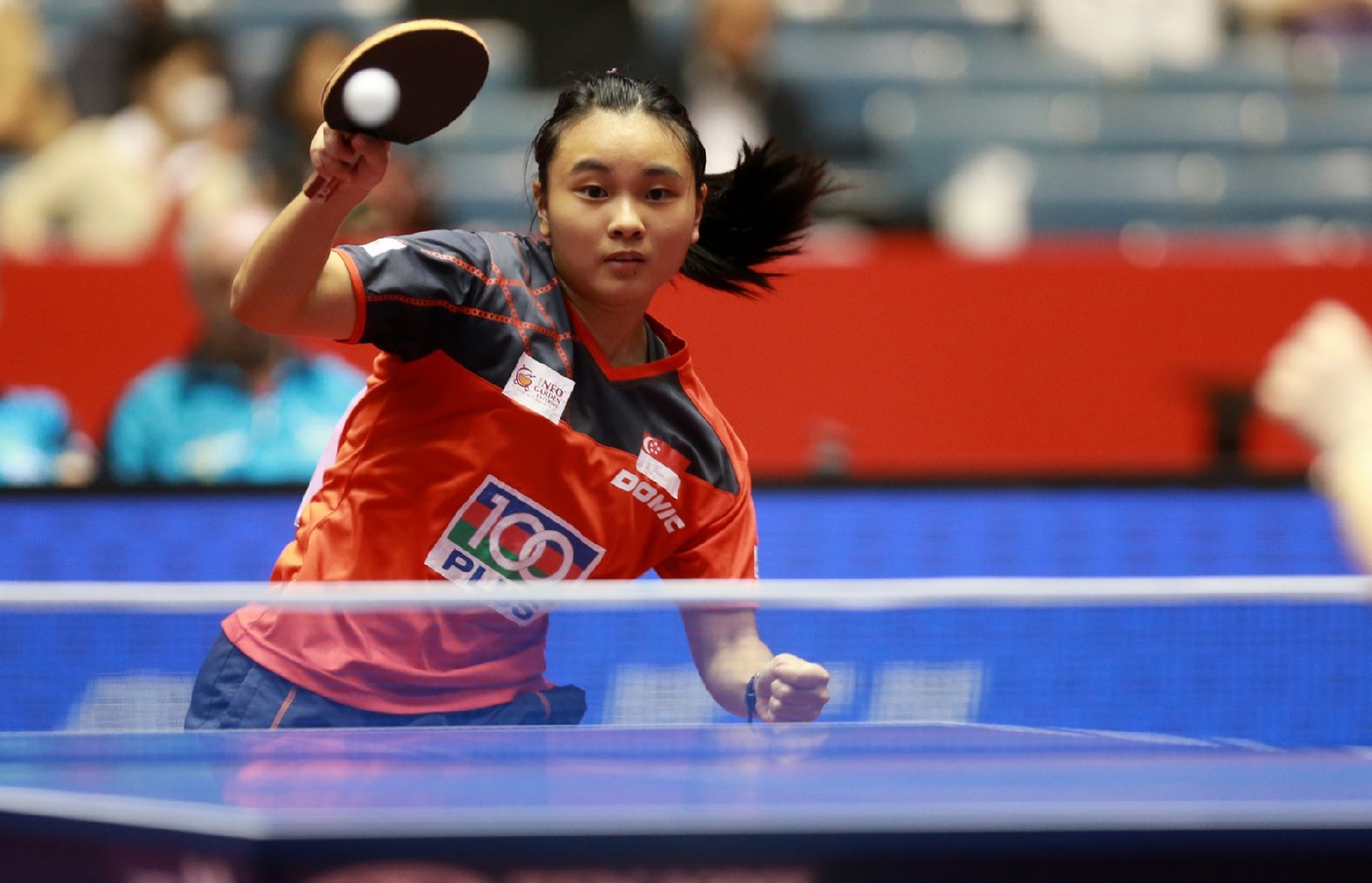Did you know that one of Singapore's native-born rising stars in table tennis, 20-year-old world No. 130 Isabelle Li, recently outshone her more senior teammate, world No. 13 Yu Mengyu, at a prestigious global event in Dubai?
Against all odds on Jan. 9, Isabelle sent tremors throughout the ping-pong world by defeating Hong Kong’s world No. 20 Lee Ho Ching 3-2 in the fifth and deciding match in the World Team Cup quarter-finals.
The Singapore Sports School graduate's career-best victory sent the city state to the semi-finals. The Republic eventually finished joint-third with Japan.
On the other hand, Yu had lost, in straight games, to Ho Ching in the first match of the quarter-final tie.
In other words, Isabelle overcame a player whom Yu had just failed to beat. Note that Yu is ranked higher than Ho Ching; while Isabelle, who has never been ranked in the world’s top 120, had beaten a top-20 player.
Although nobody is claiming that Isabelle is a better player than Yu, the Singapore-born youngster has certainly done enough to deserve a more prominent role in Singapore table tennis, which has been relying heavily on China-born paddlers for years.
Singapore Table Tennis Association (STTA) president Ellen Lee recently said in an interview with The Straits Times: "For the time being, it's necessary to tap on the foreign-born players. It'll be a lie to say otherwise... at the same time, we will not stop our quest for local-born players... to find the really good ones and polish them into an international player.”
What STTA should do
How can STTA polish the local-born players into international talents?
Here's a suggestion: Field only native-born players for the men’s and women’s singles events during the South-east Asian (SEA) Games in June, but continue with the usual practice of fielding a mixture of players for the team and doubles events.
Is there a better way to inspire a generation of future players than for them to watch on TV, or live in person at the Sports Hub, a Singapore-born player winning a SEA Games singles gold?
Furthermore, Isabelle was the top ASEAN-born player at the previous SEA Games (she won silver after losing to Yu in the women’s singles final).
Which means it is a calculated and low-risk strategy that will not affect Singapore's medal hopes.
If, after all that Isabelle has achieved, STTA still doesn't rely on her to lead the Republic's women’s singles challenge at the lowest level of all major Games, it could send the wrong signal to Singapore-born youngsters.
While it could be argued that STTA has a case for relying on China-born players even for the SEA Games because it wants to win every event (big or small) at all costs, such a kiasu approach to sports development should be reviewed.
Do we tell children competing in school sports that all other purposes of engaging in competitive sport are peripheral to the objective of winning at all costs?
Last Monday, Nominated MP Ben Tan said in Parliament: “Are our schools too focused on winning medals, at the expense of sports participation? Even school teams face the threat of being scrapped simply because they can’t achieve a podium finish.”
A win-at-all-costs approach doesn't seem ideal, and STTA would do well to note that the SEA Games is the most suitable platform to provide its less experienced, Singapore-born players with competitive exposure.
Top photo from STTA.
If you like what you read, follow us on Facebook and Twitter to get the latest updates.
If you like what you read, follow us on Facebook, Instagram, Twitter and Telegram to get the latest updates.
